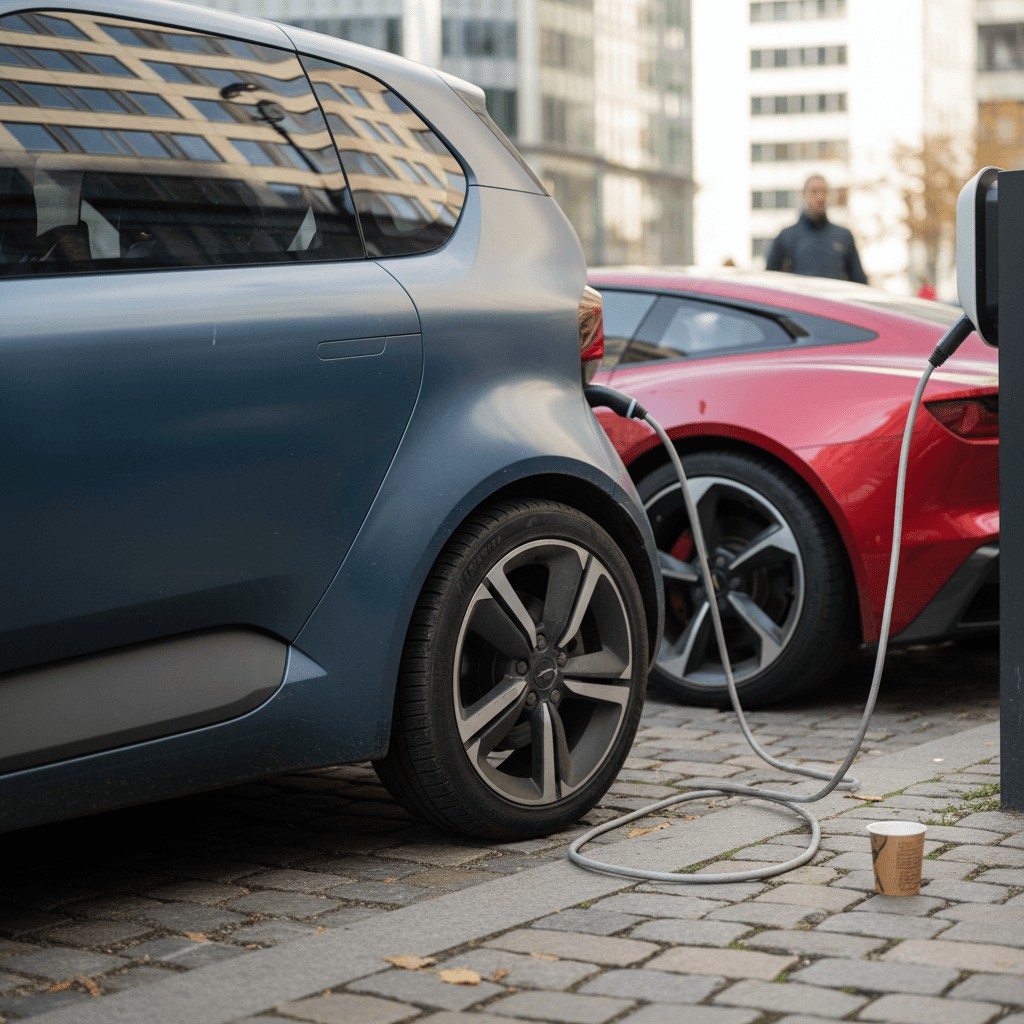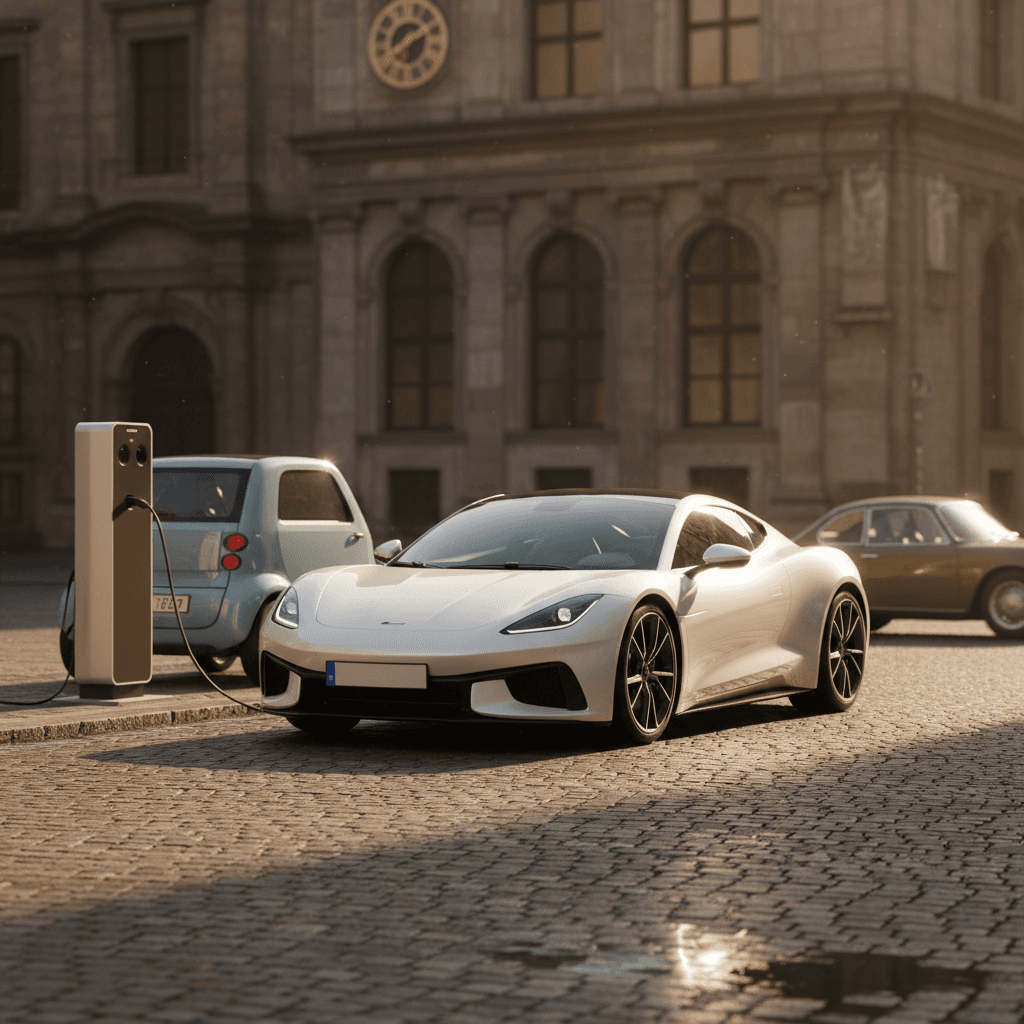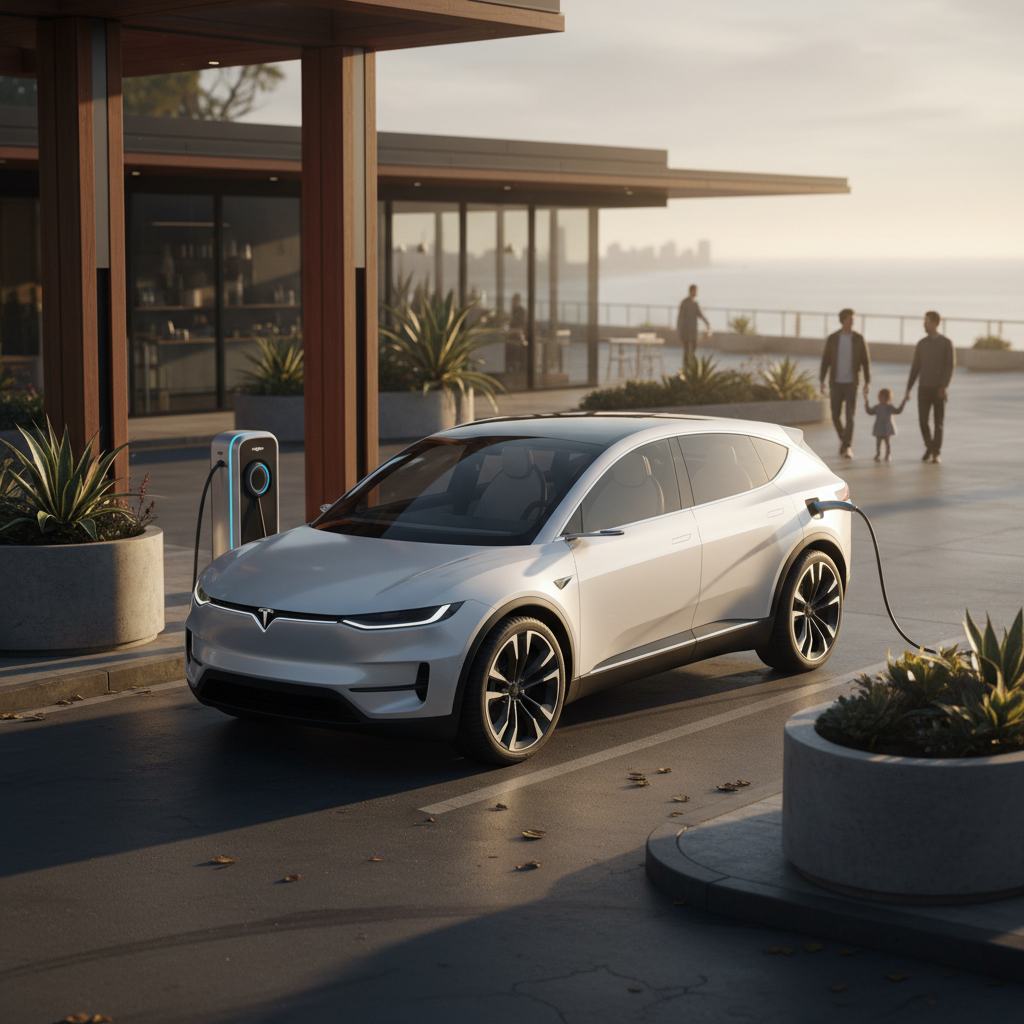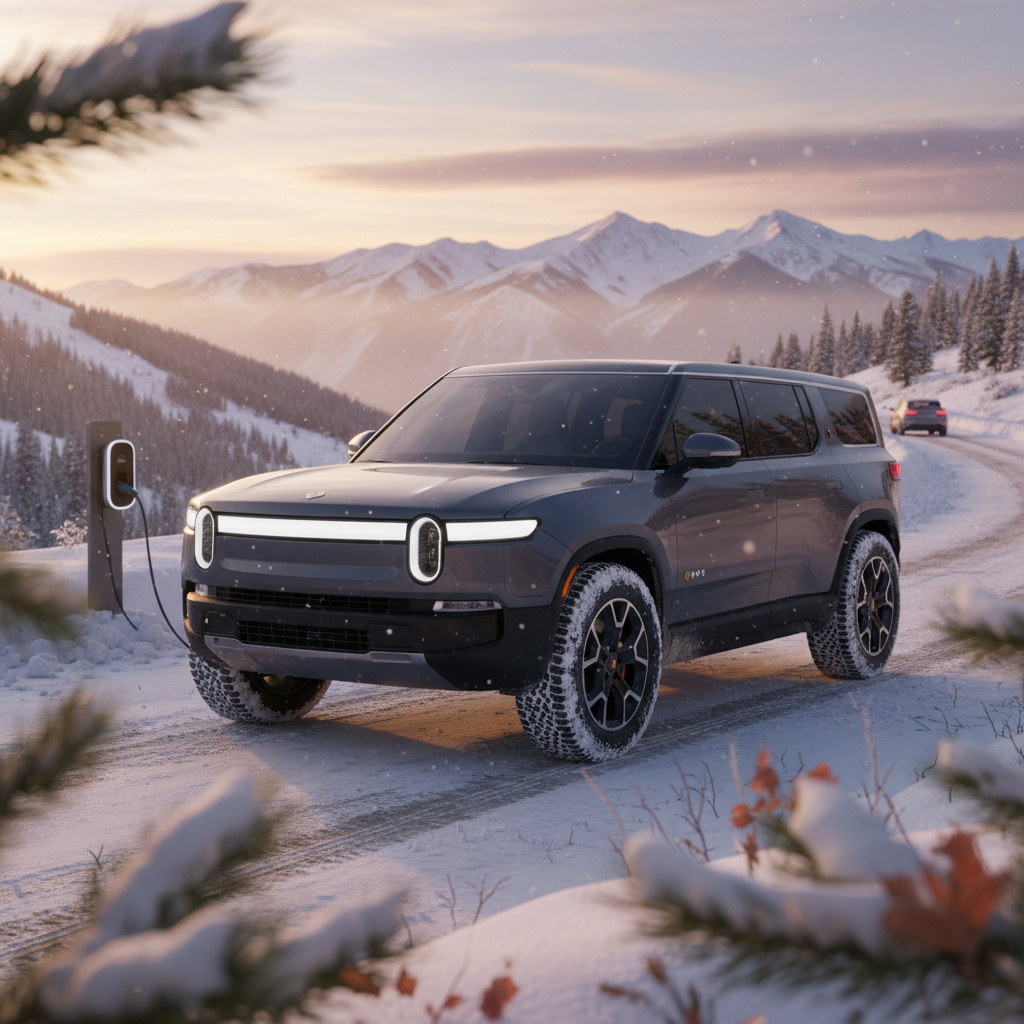If you want one vehicle that can commute, haul kids, swallow Costco runs, and still fit into a city parking space, a used compact SUV is hard to beat. The best used compact SUVs blend car‑like comfort with real practicality, and in 2025, the used market is full of smart choices, including hybrids and EVs.
What counts as a "compact" SUV?
Why used compact SUVs make so much sense
Small SUV sweet spot in today’s market
New‑car prices are still high, but compact SUVs hold their value because they’re the default family car in America. That’s the bad news. The good news is that if you choose carefully, you can get a lot of SUV for your money: modern safety tech, good crash scores, reasonable fuel bills, and in some cases, electrified powertrains that set you up for lower running costs.
Model‑year sweet spot
How we picked the best used compact SUVs
- Reliability data from large‑scale studies and long‑term ownership reports, focusing on 1–6‑year‑old vehicles.
- Safety scores from U.S. crash‑test programs, plus availability of features like automatic emergency braking and blind‑spot monitoring.
- Real‑world owner feedback on comfort, practicality, and common issues.
- Fuel economy (or in EVs, range and charging speed) relative to rivals.
- Total cost of ownership: depreciation, insurance, maintenance, and repairs.
- Availability on the used market so you’re not hunting for a unicorn.
About prices in this guide
Overall best used compact SUVs
Top 6 used compact SUVs for most shoppers
These models rise to the top on reliability, comfort, and everyday usability.
Honda CR-V (2019–2024)
Why it’s great: The CR-V is the rational choice: big back seat, big cargo hold, strong resale, and excellent reliability. The 2023 redesign improved cabin quality and made driver‑assist tech standard across the lineup.
- Engine: 1.5L turbo or hybrid
- Combined fuel economy: ~29–40 mpg, hybrid at the top
- Sweet spot: 2020–2023 EX/EX-L or Hybrid
If you want one SUV to do everything with almost no drama, this is your starting point.
Mazda CX-5 (2019–2023)
Why it’s great: If you enjoy driving, the CX-5 is your compact SUV. Steering feel and body control are more sports sedan than soft roly‑poly crossover.
- Upscale interior that still feels fresh
- Available turbo engine with strong passing power
- Trade‑off: rear seat and cargo are smaller than CR-V/RAV4
Look for Touring, Grand Touring, or Turbo trims for the best mix of features.
Toyota RAV4 (2019–2024)
Why it’s great: Rock‑solid reliability plus wide availability. The RAV4 is the compact SUV you buy when you plan to keep it forever.
- Conventional, hybrid, and plug‑in hybrid (RAV4 Prime)
- Strong resale value and lots of independent service options
- Ride can be a bit firm on sportier trims
For value, shop 2019–2022 XLE or XLE Premium; go hybrid if you want top‑tier mpg.
Subaru Forester (2019–2024)
Why it’s great: Enormous glass area, simple controls, and standard all‑wheel drive. The Forester is like a hiking buddy that also does school runs.
- Excellent visibility and crash scores
- Roomy back seat and easy‑to‑load cargo area
- Modest power; not a highway drag racer
Forester Premium and Sport trims balance features and price nicely.
Hyundai Tucson (2020–2024)
Why it’s great: The latest‑generation Tucson feels more expensive than it is, especially inside. You’ll find a lot of tech and a long warranty tail on younger used examples.
- Gas, hybrid, and plug‑in hybrid versions
- Comfort‑oriented ride and quiet cabin
- Value‑rich SEL and Limited trims
Great pick if you want a modern interior and are open to a newer Hyundai.
Mazda CX-50 (2023–present)
Why it’s great: Think of the CX-50 as a more outdoorsy CX-5: similar drivetrains, but a wider stance and a cabin that feels tailor‑made for road trips.
- Standard all‑wheel drive
- Available turbo with solid towing capacity for the class
- Interior skews premium rather than rugged
Because it’s newer, you’ll typically pay more, but you get a modern platform in return.
Shortlist starter
Best used compact SUVs by budget
Used compact SUV picks by price band
Approximate U.S. pricing for clean, average‑mileage examples in late 2025.
| Budget (approx.) | Best picks | What you give up / gain |
|---|---|---|
| Under $20,000 | 2017–2019 Honda CR-V, 2017–2019 Mazda CX-5, 2017–2019 Subaru Forester | Higher mileage, older infotainment; still a strong core vehicle if well‑maintained. |
| $20,000–$25,000 | 2019 Toyota RAV4, 2020 Honda CR-V, 2020–2021 Mazda CX-5 | Sweet spot for value and modern safety tech; good for first‑time buyers. |
| $25,000–$30,000 | 2021–2022 CR-V or RAV4, 2022 Forester, newer Hyundai Tucson | Lower miles, more remaining warranty, more driver‑assist features and nicer interiors. |
| $30,000–$35,000 | 2023–2024 CR-V or RAV4, Mazda CX-50, well‑equipped hybrids and plug‑in hybrids | Feels nearly new; you’re paying more but getting excellent long‑term usability. |
Always check local listings, your mileage, options, and market can move any of these up or down.
Stretching your dollars
Best used compact SUVs for families and commuters
Space and kid‑friendliness
If you’re hauling kids, car seats, or dogs, prioritize:
- Back‑seat room: Honda CR-V, Toyota RAV4, Subaru Forester, and Hyundai Tucson shine here.
- Cargo opening and load floor height: Square openings and low liftover make strollers and gear easier.
- Sliding/reclining rear seat: Helpful if you’re juggling passengers and cargo.
Bring your actual stroller, hockey bag, or crate to the test drive and see how they load.
Comfort, noise, and daily stress
If most of your life is commuting and errands, focus on:
- Ride quality: Mazda CX-5/CX-50 are sportier; CR-V, Tucson, and RAV4 are more relaxed.
- Seat comfort: Power lumbar adjustment and a telescoping steering wheel matter on long drives.
- Cabin noise: Test at highway speed, wind and tire roar can wear you down.
Don’t underestimate how much a quiet, supportive cabin reduces daily driving fatigue.
Family‑friendly used compact SUVs
Three models that juggle kids, cargo, and commuting especially well.
Honda CR-V
Why families love it: Wide rear doors, generous legroom, and an enormous cargo area. The hybrid models are especially efficient for school‑run duty.
Look for: EX or higher trims for more comfort features and better audio.
Subaru Forester
Why families love it: Tall roof, giant windows, and standard AWD. It’s easy to get kids and car seats in and out, and visibility is outstanding.
Look for: EyeSight driver‑assist suite and heated seats in snow‑belt states.
Mazda CX-5
Why commuters love it: Comfortable front seats, an upscale interior, and satisfying road manners turn a grind of a commute into something you might actually enjoy.
Look for: Grand Touring or Signature for a touch of luxury.

Best used compact SUVs for bad weather and adventures
If your weekends involve trailheads, ski cabins, or muddy soccer fields, you’ll want a compact SUV that feels confident when the weather goes sideways. All‑wheel drive helps, but it’s only part of the story; ground clearance, tires, and drive‑mode tuning matter too.
Adventure‑ready compact SUVs
Small SUVs that are surprisingly capable when the pavement ends.
Subaru Forester
Why: Standard AWD and generous ground clearance, plus X‑Mode settings on many trims for snow and dirt. Not a rock crawler, but very confidence‑inspiring.
Best for: Snow‑belt drivers and light off‑pavement exploring.
Mazda CX-50
Why: Wider stance and available off‑road drive modes give the CX‑50 a planted feel on gravel and dirt roads. Turbo models can tow small campers or utility trailers.
Best for: Drivers who want something fun on twisty roads and forest roads.
Ford Bronco Sport & Toyota RAV4 Adventure/TRD
Why: Bronco Sport trims and the RAV4 Adventure/TRD models come with more aggressive tires and extra ground clearance.
Best for: Buyers who want a more outdoorsy personality without moving to a full‑size Bronco or 4Runner.
Don’t rely on AWD alone
Best used hybrid and electric compact SUVs
Electrified compact SUVs shrink fuel stops and running costs, but you have to shop a little differently. Battery health, charging access, and warranty coverage matter as much as cupholders and cargo volume. Here are standout choices if you want to plug in.
Top used electrified compact SUVs
Lower fuel bills, same everyday usability.
Toyota RAV4 Hybrid & RAV4 Prime
Why: The RAV4 Hybrid delivers excellent mpg with Toyota’s well‑proven hybrid system. The RAV4 Prime plug‑in hybrid adds strong acceleration and real‑world electric‑only range for many commutes.
Best for: Drivers who want to cut fuel use without learning a whole new charging lifestyle.
Hyundai Kona Electric & Kia Niro EV
Why: These compact EVs offer solid range, compact‑SUV practicality, and typically lower prices than some headline‑grabbing EVs.
- Many used examples have 200+ miles of rated range when new.
- Perfect for suburban commutes and around‑town duty.
Earlier model‑year warranties may still apply on the battery.
Volkswagen ID.4 & Chevrolet Equinox EV
Why: The ID.4 and newer Equinox EV bring truly SUV‑like space to the EV world. Later model years improved software and charging behavior.
Best for: Households that can install Level 2 home charging and want an EV as a primary family car.

Why battery health matters
Ownership costs: what you’ll pay to run a used compact SUV
Fuel or energy costs
- Gas models: Expect mid‑20s to low‑30s mpg in mixed driving for most late‑model compact SUVs. Hybrids can stretch into the high‑30s or more.
- Plug‑in hybrids: When you plug in regularly, many school runs and errands can be all‑electric, with gas backup for road trips.
- Full EVs: Home charging is typically cheaper per mile than gas. Public DC fast charging is convenient but more expensive.
Maintenance, repairs, and insurance
- Maintenance: Gas compact SUVs will need oil changes, filters, and transmission fluid. Hybrids and EVs skip some of that but still need tires, brakes, and coolant services.
- Repairs: Reliability leaders (CR-V, RAV4, Forester) usually cost less to keep on the road than some luxury or performance‑oriented options.
- Insurance: Compact SUVs often fall into a sweet spot on premiums, but quotes can vary wildly by ZIP code, so get estimates on specific VINs.
Don’t ignore total cost of ownership
Used compact SUV buying checklist
10 steps to a smarter used compact SUV purchase
1. Define your real needs
List how you’ll actually use the SUV in a typical week: commute length, passengers, parking situation, and towing or cargo needs. This keeps you from paying for capability you’ll never use.
2. Set a realistic budget
Include not just the purchase price but taxes, registration, insurance, and an initial maintenance cushion. If you’re financing, consider getting <strong>pre‑qualified</strong> so you know your payment comfort zone.
3. Shortlist proven models
Start with reliability standouts like CR-V, RAV4, CX‑5/CX‑50, Forester, and Tucson. Add one or two wildcards if you’re curious, but keep your list focused enough to compare back‑to‑back.
4. Check crash and safety ratings
Confirm that the model years you’re shopping have strong crash‑test scores and key safety tech (automatic emergency braking, lane‑keeping, blind‑spot monitoring).
5. Read the vehicle history report
Run the VIN to check for accidents, title issues, odometer inconsistencies, and open recalls. Be wary of repeated collision or flood damage in the vehicle’s past.
6. Inspect condition in person
Look for uneven panel gaps, overspray, or mismatched paint that can hint at previous repairs. Inside, check for water marks, odors, and excessive seat or steering‑wheel wear versus the odometer.
7. Drive it like you own it
On the test drive, include highway speeds, rough pavement, and tight turns. Listen for clunks, rattles, wind noise, and feel for transmission shudder or hesitation.
8. Verify common trouble spots
Each model has known quirks, from turbo‑engine maintenance to CVT behavior. A quick model‑specific checklist (or a trusted mechanic) can keep you from inheriting someone else’s headache.
9. Get a pre‑purchase inspection
Have an independent mechanic or EV specialist inspect the SUV before you sign. For EVs, ask specifically about battery health reports and any past high‑voltage system repairs.
10. Understand the numbers
Review the out‑the‑door price, financing terms, and any add‑ons. If something doesn’t line up with your research or gut feeling, be ready to walk away, there will always be another used compact SUV.
How Recharged helps if you’re considering an electric compact SUV
If your ideal compact SUV runs on electrons rather than gasoline, the stakes around battery health and charging compatibility go up. That’s exactly the problem Recharged was built to solve.
What you get with a used EV from Recharged
Making EV ownership as simple and transparent as possible.
Recharged Score battery report
Every EV on Recharged comes with a Recharged Score Report that verifies battery health, fast‑charging history, and overall vehicle condition. You’re not guessing whether that Kona Electric or Niro EV still has the range you need.
Fair pricing & flexible paths
Recharged analyzes market data to offer fair market pricing, plus options to finance, trade‑in, get an instant offer, or consign your current vehicle. You can shop fully online or get help in person at the Recharged Experience Center in Richmond, VA.
EV‑specialist support
EV‑savvy advisors help you compare electric compact SUVs, understand charging at home and on the road, and decide whether a full EV, hybrid, or plug‑in hybrid fits your life best.
From research to driveway
Frequently asked questions
Best used compact SUVs: FAQ
Bottom line: choosing the best used compact SUV for you
The best used compact SUV isn’t the one with the flashiest grille or the most aggressive ad campaign. It’s the one that quietly does everything you ask of it, starts every morning, carries your people and stuff, protects you in a crash, and doesn’t drain your bank account with surprise repairs.
If you want maximum predictability and family‑friendly space, start with a Honda CR-V, Toyota RAV4, Subaru Forester, Mazda CX‑5/CX‑50, or Hyundai Tucson in that 2019–2023 sweet spot. If you’re ready to plug in, add the RAV4 Hybrid/Prime, Kona Electric, Niro EV, and VW ID.4 to your list and pay close attention to battery health and charging options.
Take the time to drive a few back‑to‑back, bring your real‑world gear, and insist on a clean history report plus an independent inspection. Do that, and your used compact SUV, gas, hybrid, or electric, will feel like it was built specifically for your life, not someone else’s.



